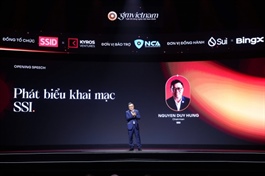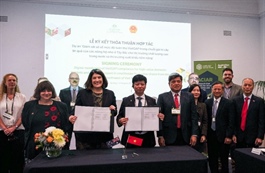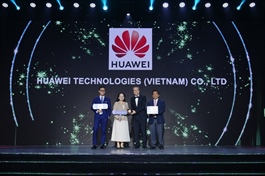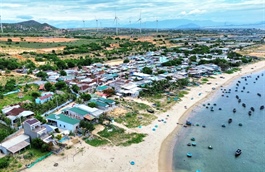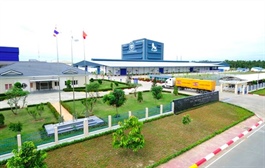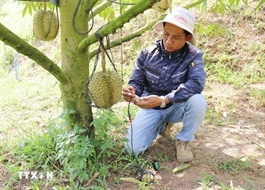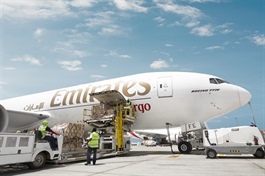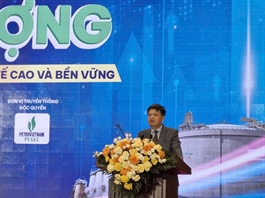Unlocking export potential of products made from agricultural waste
Unlocking export potential of products made from agricultural waste
Việt Nam has precious resources, which, if researched, innovated and commercialised properly, could truly become "green gold".
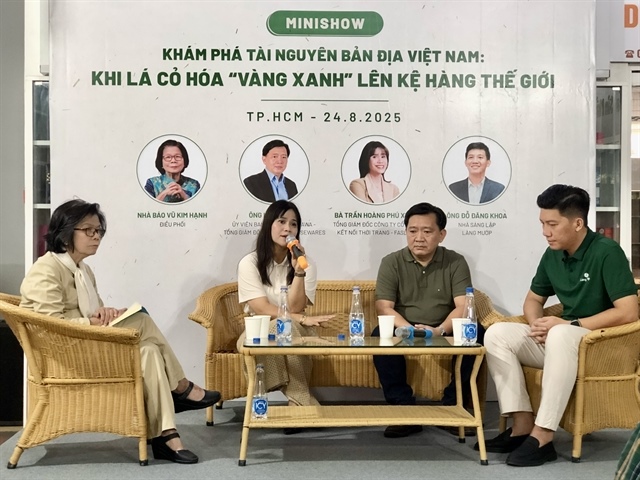
Enterprises at the seminar in HCM City on August 24 share how they are turning agricultual by-products into eco-friendly, high-value products. — VNS Photo |
Many Vietnamese enterprises have successfully transformed agricultural by-products such as pandan leaves, coffee grounds, loofah fibres, and wild grasses into eco-friendly, high-value products that are increasingly popular in international markets.
This was highlighted at a seminar titled “Exploring Việt Nam’s Indigenous Resources” with the theme “When Grass Turns into Green Gold on Global Shelves” held on August 24 in HCM City by the High-Quality Vietnamese Goods Business Association and the Business Study and Assistance Centre.
Lai Trí Mộc, general director of Vietnam Housewares, spoke about how his company successfully harnessed “cỏ năn tượng” (bulrush), a wild grass growing along riverbanks and rice fields in the Mekong Delta, to produce handicrafts, household items and eco-friendly furniture and regularly export to Europe.
The bulrush is not only environmentally friendly but also meets international chemical safety standards, making it suitable for markets with high entry barriers such as Europe, the US and Australia.
With its ease of cultivation and steady supply, it helped delta residents develop sustainable livelihoods at low costs, thereby strengthening the competitiveness of Vietnamese handicrafts worldwide, Mộc said.
“If you want to build an export-oriented manufacturing business, sustainable raw materials must be the top priority. In handicrafts, leveraging local resources is not only environmentally beneficial but also the key to successful commercialisation in global markets.”
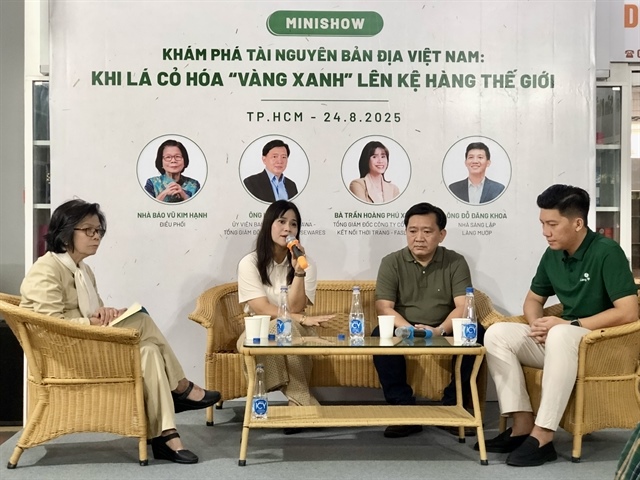
Enterprises at the seminar in HCM City on August 24 share how they are turning agricultual by-products into eco-friendly, high-value products. — VNS Photo |
Đỗ Đăng Khoa, founder of Làng Mướp (Loofah Village), said 15 years ago, following a suggestion from a foreign partner, the company began experimenting with loofah fibre, a material that was abundant but underutilised.
Since then Làng Mướp had developed more than 20 product lines ranging from kitchenware and home décor to pet toys.
Sesame husk and fruit peels had also been turned into household goods and decorative items.
What farmers once burned as waste had now become export material, Khoa said.
His company has been exporting loofah products to Japan for over a decade thanks to their durability and eco-friendliness. It is now expanding into Korea, Europe and soon Germany with loofah-based pet toys, he said.
In the domestic market, Làng Mướp boosted online sales, relying on natural livestreaming instead of aggressive advertising and received hundreds of orders daily, he added.
Sustainability is also at the heart of Faslink’s fashion innovations.
CEO Trần Hoàng Phú Xuân said her company produced textile fibres from pandan leaves and coffee grounds.
"Pandan-leaf fibre is antibacterial, UV-resistant and odor-eliminating without the use of chemicals," she said.
In July Faslink showcased these materials at Texworld USA in New York, the US, impressing international buyers and designers.
The company exports coffee-fibre shirts to the US, handbags to Singapore and socks to the Middle East.
“The market is always in need of new materials,” Xuân said.
“In the fashion industry, new materials create new user experiences. The current trend is lightweight, multifunctional clothing.”
European and some other developed markets now required products to demonstrate positive impacts on the environment and society, she said.
If they fail to do this, Vietnamese exporters would remain stuck in poorer markets, she said.
“We need a new generation of entrepreneurs with global vision, sustainable thinking and true competitiveness.”
Vũ Kim Hạnh, chairwoman of the High-Quality Vietnamese Goods Business Association, said in recent years a trend of preferring natural materials and traditional products had become a powerful consumer movement.
"Việt Nam has precious resources, which, if researched, innovated and commercialised properly, could truly become 'green gold',” she added.
- 15:19 25/08/2025





